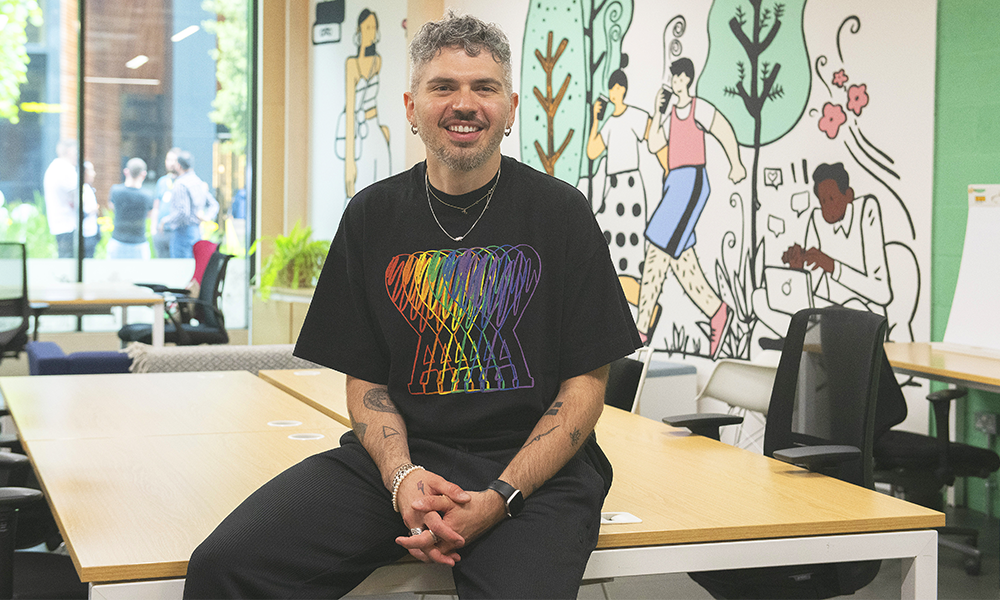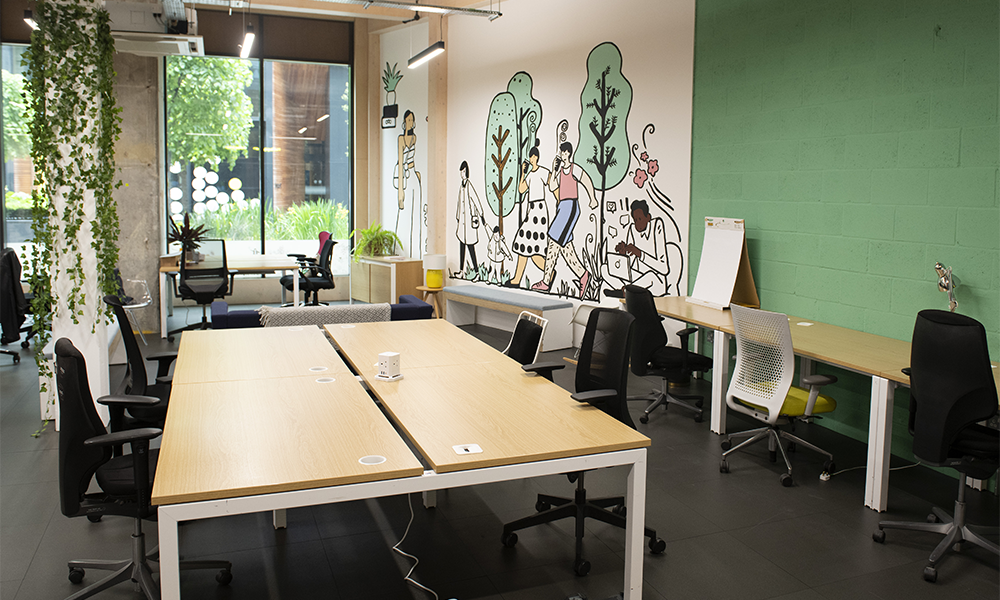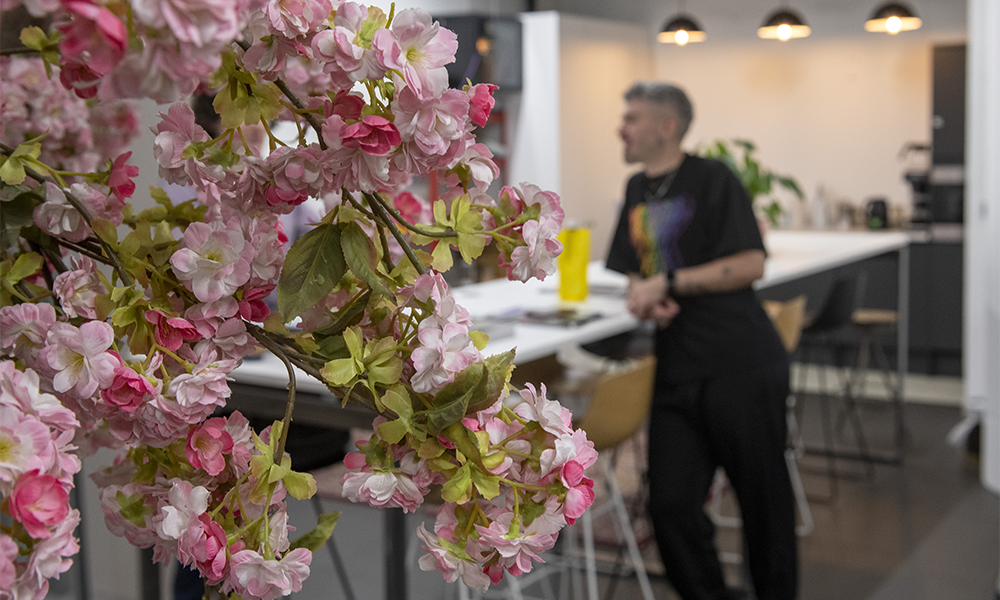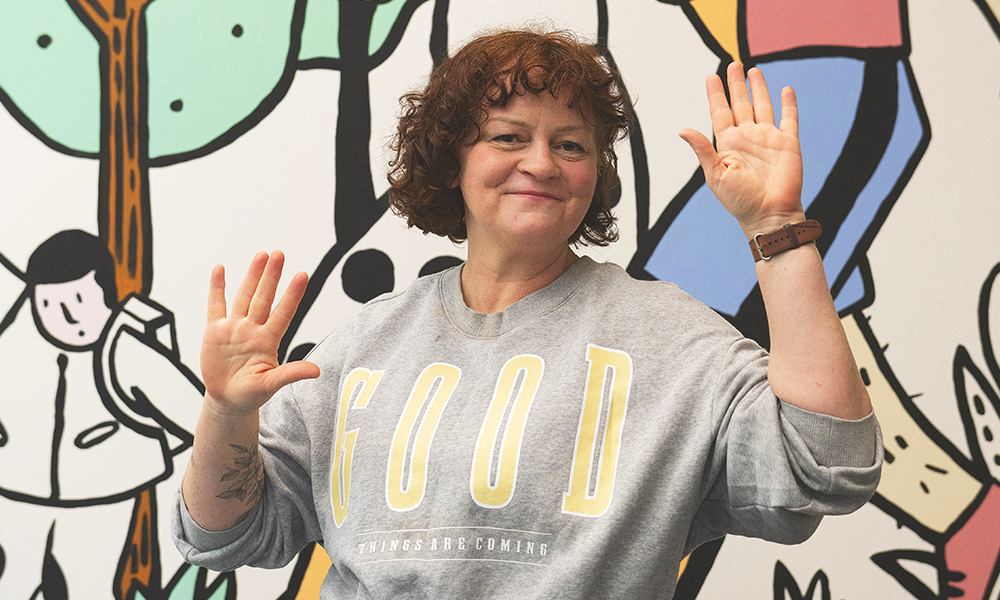One Canada Square-based firm livestreams demo days and hosts in-person events for founders

Subscribe to our free Wharf Whispers newsletter here
Pitchflix is a two-way street.
Put simply, the startup, based at Canary Wharf’s Level39 in One Canada Square, connects entrepreneurs with investors and investors with entrepreneurs – digitally and in person.
“It’s an attempt to oil the wheels and reduce friction,” said Shane Smith, the company’s CEO.
“When founders are trying to raise venture capital, we aim to connect them with an investor network to help them do that.
“If you’re trying to raise money for the first time as a business, that’s the toughest time for you, because you’re not on anybody’s radar.
“It’s also the toughest time for investors, because, on the basis that you’re new, there’s no history, no track record – no-one’s done any research on you.
“At that stage, both sides have a pretty tough time finding the right match.
“Given that lack of information, the most valuable thing investors have to go on is the founders themselves.
“The way to understand founders is, ideally, to sit down across the table and have a good conversation about what they’re doing.
“The problem with that, is the economics don’t stack up for the investors to arrange those conversations and physically sit in locations all over the world to have them.”
Shane founded Pitchflix to address the issue, building on a career that’s long focused on providing information to people and companies that need it.
“My background has been between technology, financial markets and research,” he said.
“I started as one of the founding team in London for what was, at the time, a small startup in the US called Bloomberg.
“I was hired to the London office originally, and I moved on from there to set up my own research business, initially in Paris, then brought it back to London.
“We ran that until 2009 when it got beaten up by the credit crunch.
“Then I switched focus to investor communications rather than research, gradually moving from large listed companies, primarily in Asia, down the scale to smaller businesses.
“Pitchflix is an exercise to connect those smaller companies with investors.

“This is the most interesting part of the market, because startups are generally doing more interesting, innovative things – there’s quite a buzz at the smaller end because tomorrow’s mega corporations are being created today.”
The next best thing to sitting in a room with investors is video – how can we get a short piece from founders, even a couple of minutes, in front of them?” said Shane.
“Startups which have been through an accelerator programme will typically do a demo day at the end, where investors come to listen to founders present.
“Our approach is to help accelerators livestream their demo days so international investors can view them from wherever they are, overcoming the geographical obstacles.
“There are firms who try to bridge that gap, but they typically operate in the corporate finance space where they are trying to broker those deals – we take a very different approach.
“We’re a media business – we help founders advertise themselves to an audience – we don’t get involved in the deals themselves.
“Pitchflix is a conduit that tries to remove friction in the connection and communication between the two parties.
“Investors might be conventional venture capital, corporate venture capital or companies looking to put money into early stage businesses.
“They might also be angel investors or angel syndicates.
“They all face similar problems and we’re trying to solve them.
“For example, if an investor decides to attend a demo day, they might only be interested in a specific sector, but this might involve sitting through pitches from 20 businesses in other fields just to see the one relevant one.
“That’s not a good use of their time.”
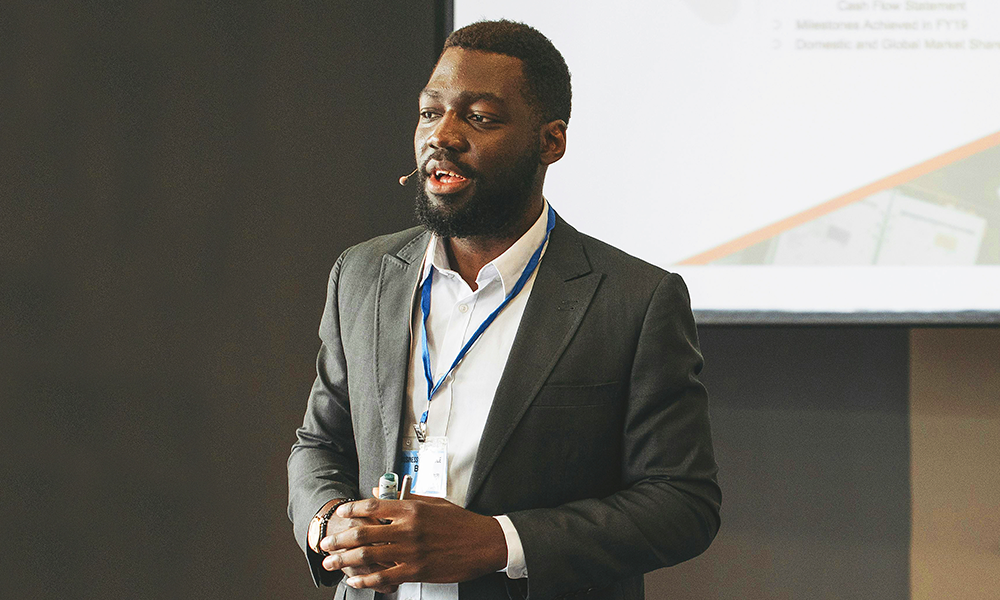
After livestreaming, Pitchflix hosts founders’ videos on its site, so investors can review them at their leisure.
“The next stage of the business was to turn that model on its head and have investors pitching to founders,” said Shane.
“We wanted to do that because we’d observed that, while there are lots of demo day and pitch competition events all over London and the rest of the country, nobody was systematically hosting investors who could pitch to an audience of founders to tell them what they were looking for.
“We call them ‘Rev’ for reverse pitch series. We needed to find a bigger space to host them and we discovered Level39.
“That’s where we put them on, every six weeks or so, and we have a lot of community members coming to them.
“We’re also based there. We started the business in 2019 and, as Covid restrictions, melted away, it was really hard to build a cohesive team and culture while working from home in spare bedrooms or at kitchen tables.
“We hired one person who did a fantastic job of getting up to speed from home, but we felt we needed more than that for the next people coming on board – our recent hires since we’ve been together in one place have been very quick getting into the business and are really productive.”
IN-PERSON
Pitchflix’s next Rev event is set to take place on February 27, 2024 at Level39 with further events in Singapore, Hong Kong and New York in the pipeline for March, April and later in 2024, respectively.
“Rev events are a very concise, efficient use of a founder’s time,” said Shane.
“For two hours attendees will sit and listen to up to 15 investors giving lightning, five-minute showcases of what they like to invest in and why.
“They’ll tell you how much they typically invest, whether they like to collaborate with others, whether they like to lead or follow, a lot of reference data about them, and you’ll get out of it and a sense of the personality and chemistry you might have with them.
“Is this an investor you think you can have a really productive five or 10 year relationship with?
“Are they someone you’d like to have a beer with?
“These are the kind of insights you’re not going to get unless you’re in a room with that person.
“After the presentations, there are audience questions and then there’s networking with some drinks.
“The idea for founders is it’s an opportunity to make themselves memorable, so that when they email the next day with their pitch, they’ll be on investors’ radars.”
Founders tickers for Rev events in London cost a nominal £20, aimed at ensuring those who have booked a place turn up.
At present, Pitchflix’s platform is free for both businesses and investors to use with the eventual aim of charging startups an affordable fee once the marketplace is consistently matching entrepreneurs with capital.
“This is very different from the brokering model, where those firms charge a retainer,” said Shane.
“We also don’t get involved with the production of the demo days themselves because there are tons of them happening.
“We’re just trying to make the process more efficient and extend their reach.
“Bloomberg started life as a business solving one problem – Mike didn’t have a crystal ball for the next 40 years, they were just trying to build a better mousetrap.
“There’s a sort of trend now that investors want to see how things will develop in the next five or 10 years, but you don’t need to.
“You just start with something that’s profitable, and then you explore, listen to your clients, be agile, nimble and develop.
“In our own investor presentations, we describe what we’re building and why it’s great for the market ecosystem. Have we got the full picture – no – but we’re listening.
“Very often you get the first signals about new and emerging stuff from entrepreneurs and what they’re talking about.
vWe’re recording that and analysing it will give you a pretty good indication of what’s coming down the road at 100mph, six months later.
“We have many ideas about how to develop Pitchflix and that’s something we’ll be looking at over the next few years.”
Find out more about Pitchflix here
Read Wharf Life’s e-edition here
Subscribe to our free Wharf Whispers newsletter here
- Jon Massey is co-founder and editorial director of Wharf Life and writes about a wide range of subjects in Canary Wharf, Docklands and east London - contact via jon.massey@wharf-life.com




